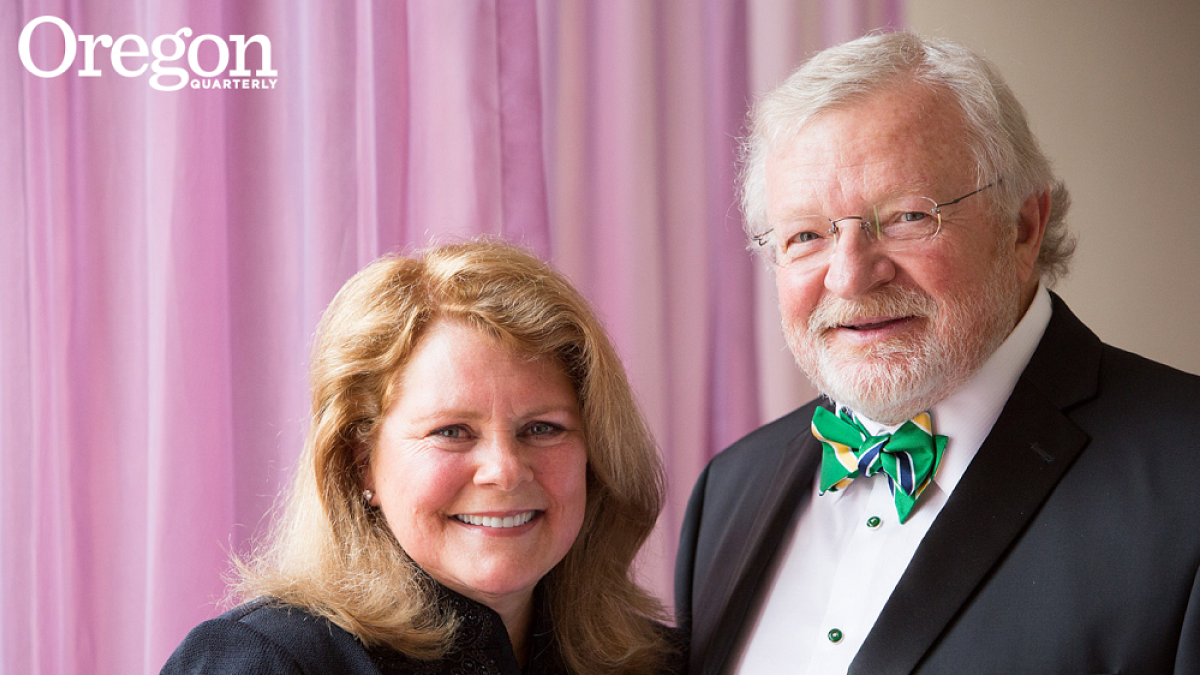On July 1, an independent board of trustees assumed governance of the University of Oregon for the first time since 1929. We asked Chuck Lillis, who brings a wealth of academic, corporate, and board experience to his role as chair, to share his thoughts on the challenges and opportunities facing the university, and the role the new board will play.
Oregon Quarterly: This shift to an independent governing board has been described as “a watershed moment.” Why is it so important?
Chuck Lillis: This is a recognition that the universities in the state are unique, and if we expect them to excel—which we do—we need the benefits of unique, focused, disciplined supervision of each of those universities. There aren’t many public universities in the country that have this kind of latitude in their trustee group. I think it is historic, and it took some courage, on everyone’s part, to get there.
What will be the most immediate effects of the new governance structure?
You’ll see changes that give the university more freedom to be as creative and as unique as possible. You’ll see much more in-depth support for what the administration and the faculty are trying to do. You’ll see more direct support of those ambitions and goals because we’ll be able to address them at a more detailed level than the previous board was able to. And I think you’ll see an activist board, very interested in understanding the academic excellence of the university and making an impact on where money is spent and how much is spent to support and reinforce those goals, ambitions, and aspirations.
What are some of the board’s biggest challenges?
The number-one challenge will be funding the academic plan, which reflects the strategic intent to move this university from good to great. We know exactly what we need to do: Hire more great tenure-track faculty members. Increase scholarship support to make it easier for students to come, particularly Oregon residents. Build additional lab, teaching, and research facilities. We just have to fund it.
How will the board facilitate that?
It’s imperative that the board be involved in actively supporting the fundraising campaign. What is it we’re trying to achieve? How much money do we need for what? What are the sources of those funds? We need to discipline ourselves to prioritize and invest in a few areas where we’re already excellent, and where that investment will put us among the best in the world. We set a campaign target [$2 billion] that supports our aspirations for excellence. Now it’s up to us to make that happen.
What influenced your decision to accept the role as chairman of the board?
I was a first-generation student. I have benefited from a great education from public universities that allowed me to fundamentally change my life, both in terms of knowledge and opportunity. It opened the world to me. I had such a good experience as a PhD student at Oregon that when I was asked, it was a pretty easy decision for me to want to be a trustee.
One last question: What do you love about the University of Oregon? What is it that drives your commitment to its future success?
Certainly the people, the individual faculty members I’ve known over the years, are a major influence. I like the style of the university, that we are aggressive, we are fast, we have a big focus on undergraduate education, we embrace the importance of environment. Those are features about Oregon that I really align with and associate with. I’ve been around this university since I got my PhD in 1972, and I’ve never seen a better time. It’s just a cool time to be here, and it’s an important time. We better not blink, and we need to move quickly. This is not something we can do casually, but I do think we can all hold hands and get this done.


